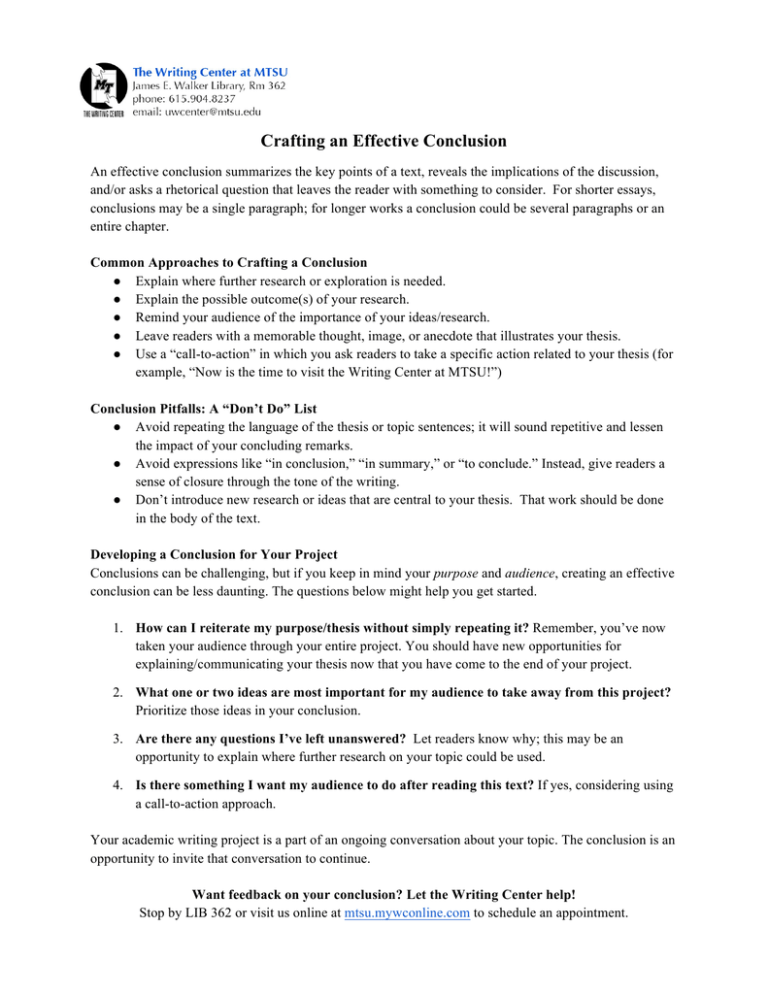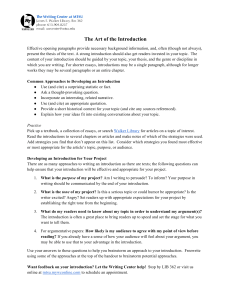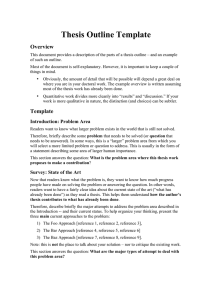Crafting an Effective Conclusion
advertisement

Crafting an Effective Conclusion An effective conclusion summarizes the key points of a text, reveals the implications of the discussion, and/or asks a rhetorical question that leaves the reader with something to consider. For shorter essays, conclusions may be a single paragraph; for longer works a conclusion could be several paragraphs or an entire chapter. Common Approaches to Crafting a Conclusion ● Explain where further research or exploration is needed. ● Explain the possible outcome(s) of your research. ● Remind your audience of the importance of your ideas/research. ● Leave readers with a memorable thought, image, or anecdote that illustrates your thesis. ● Use a “call-to-action” in which you ask readers to take a specific action related to your thesis (for example, “Now is the time to visit the Writing Center at MTSU!”) Conclusion Pitfalls: A “Don’t Do” List ● Avoid repeating the language of the thesis or topic sentences; it will sound repetitive and lessen the impact of your concluding remarks. ● Avoid expressions like “in conclusion,” “in summary,” or “to conclude.” Instead, give readers a sense of closure through the tone of the writing. ● Don’t introduce new research or ideas that are central to your thesis. That work should be done in the body of the text. Developing a Conclusion for Your Project Conclusions can be challenging, but if you keep in mind your purpose and audience, creating an effective conclusion can be less daunting. The questions below might help you get started. 1. How can I reiterate my purpose/thesis without simply repeating it? Remember, you’ve now taken your audience through your entire project. You should have new opportunities for explaining/communicating your thesis now that you have come to the end of your project. 2. What one or two ideas are most important for my audience to take away from this project? Prioritize those ideas in your conclusion. 3. Are there any questions I’ve left unanswered? Let readers know why; this may be an opportunity to explain where further research on your topic could be used. 4. Is there something I want my audience to do after reading this text? If yes, considering using a call-to-action approach. Your academic writing project is a part of an ongoing conversation about your topic. The conclusion is an opportunity to invite that conversation to continue. Want feedback on your conclusion? Let the Writing Center help! Stop by LIB 362 or visit us online at mtsu.mywconline.com to schedule an appointment.


